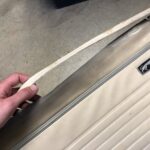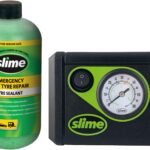Dealing with a car repair bill that seems too high or includes unauthorized charges can be incredibly frustrating. You’re already stressed about your car being out of commission, and now you’re facing a financial headache. But you don’t have to feel helpless. Knowing your rights and taking proactive steps can significantly increase your chances of winning a dispute with a car repair shop and ensure you’re treated fairly. This guide will equip you with the knowledge and strategies you need to navigate car repair billing disputes successfully.
Understanding Your Rights and Preventing Car Repair Disputes
The best way to win a dispute is to prevent it from happening in the first place. Being informed and proactive before, during, and after car repairs is crucial.
Choose a Reputable Car Repair Shop
Your first line of defense against unfair car repair bills is selecting a trustworthy mechanic. Don’t wait until your check engine light is on to start looking for a good shop.
- Seek Recommendations: Ask friends, family, or neighbors for recommendations. Personal referrals are often a reliable way to find honest mechanics.
- Online Research is Key: Check online reviews on platforms like Google, Yelp, or the Better Business Bureau (BBB). Pay attention to the overall rating and read through reviews to understand other customers’ experiences, particularly regarding billing and customer service.
- ASE Certification Matters: Look for shops that employ ASE (Automotive Service Excellence) certified mechanics. ASE certification indicates that mechanics have passed standardized tests and demonstrated competence in car repair.
Know Your Warranty Rights
Understanding your car warranty is essential, especially for newer vehicles. The Magnusson-Moss Warranty Act protects your rights as a consumer.
- Dealership vs. Independent Shop: You generally don’t have to use a dealership for routine maintenance or to use manufacturer-brand parts to keep your warranty valid. Independent repair shops can perform maintenance and repairs without voiding your warranty, provided they use comparable quality parts and services.
- Warranty Coverage: Familiarize yourself with what your warranty covers. This will help you determine if repairs should be covered under warranty, potentially saving you money and preventing disputes about coverage.
Always Get Written Authorizations
Paperwork is your friend when it comes to car repairs. Never rely on verbal agreements.
- Authorization to Inspect: Before any work begins, even for diagnosis, you should sign a written authorization to inspect. This document should detail the inspection services, associated fees, and whether any disassembly is involved. Ensure you understand what you’re signing and get a copy for your records.
- Authorization to Repair: Crucially, you need a separate written authorization to commence repairs. This work order should clearly outline:
- Detailed description of the repairs to be performed.
- Itemized list of parts and labor costs.
- Estimated completion date.
- Terms of payment.
- Total estimated cost.
Carefully review the repair authorization and ensure it aligns with your understanding before signing. Don’t hesitate to ask questions and clarify any points you are unsure about.
Common Car Repair Bill Issues and How to Avoid Them
Being aware of common car repair scams and billing problems can help you proactively avoid disputes.
Unauthorized Repairs and Upselling
- The “Lift Trap”: Some less scrupulous shops may put your car on a lift and begin disassembling it before getting repair authorization. This tactic pressures you into approving potentially overpriced repairs because your car is already in pieces. Insist on a written estimate and authorization before any disassembly.
- Unnecessary Services: Be wary of mechanics who aggressively push for services or replacements you didn’t request or that seem excessive for the problem you described. For example, being told you need a new transmission based solely on “dirty oil with metal filings” can be misleading, as some filings are normal wear and tear. Always get a clear explanation and question recommendations that seem suspicious.
Hidden Fees and Misleading Estimates
- Verbal Estimates Are Risky: A verbal estimate is not binding. Always insist on a written estimate. Shops are often legally obligated to stick close to a written estimate.
- Surprise Charges: Shops should disclose all potential charges upfront, including diagnostic fees, reassembly fees if you decline repairs, or towing fees (even if advertised as “free”). Watch out for advertised “free” services that come with hidden conditions or costs.
- Failure to Notify of Additional Work: If a mechanic discovers additional necessary repairs beyond the original estimate, they must contact you for approval before proceeding with the extra work. They should provide a revised written estimate for these additional costs. You have the right to refuse the extra work.
Pressure Tactics and Rushed Decisions
- High-Pressure Sales: Beware of mechanics who pressure you to make immediate decisions or use scare tactics to convince you to approve repairs. Take your time, get a second opinion if needed, and don’t feel rushed.
- Personal Information Scams: Be cautious about providing personal information like credit card numbers or driver’s license details before authorizing repairs. Some shops might use this information to start work without proper authorization, claiming you implicitly approved it by providing your details. Only provide payment information when you have authorized the work and are ready to pay.
Steps to Take When You Have a Car Repair Bill Dispute
Even with careful planning, you might still encounter a car repair bill dispute. Here’s how to handle it effectively:
Question the Bill and Document Everything
- Review the Bill Carefully: Compare the final bill to your original written estimate and repair authorization. Are there discrepancies? Are there charges for work you didn’t authorize or that weren’t included in the estimate?
- Demand a Written Explanation: If the bill is higher than expected, or if you see unauthorized charges, immediately question it with the repair shop. Ask them to provide a written explanation for every discrepancy. Keep this written explanation, along with your original estimate, repair authorization, and the final bill.
- Request Old Parts: Ask for your old parts back. This can help you verify if the repairs were actually performed and if the replaced parts were truly necessary. (Note: you might not get all parts back, as some, like alternators, are returned for core refunds).
Get a Second Opinion
- Independent Inspection: If you suspect the repairs were unnecessary or poorly done, take your car to a different, reputable mechanic for a second opinion. Provide the second mechanic with a copy of your itemized receipt from the first shop and ask them to inspect the alleged repairs and parts.
- Written Report is Crucial: Get a written report from the second mechanic detailing their findings. This report can be powerful evidence in your dispute. It can confirm if the initial repairs were faulty, unnecessary, or if new problems have arisen due to improper work.
Dispute the Charge with Your Credit Card Company
- Credit Card Chargeback: If you paid with a credit card and are unsatisfied with the repairs, you have the right to dispute the charge with your credit card company under the Fair Credit Billing Act.
- Act Quickly: You must dispute the charge in writing within 60 days of the date of the first bill containing the disputed charge.
- Send a Formal Dispute Letter: Send a formal dispute letter to the billing inquiry address of your credit card company (not the payment address). Include:
- Your name and account number.
- The dollar amount of the disputed charge.
- The date of the charge.
- The merchant’s name (car repair shop).
- A clear explanation of why you are disputing the charge (e.g., unauthorized repairs, billing errors, poor workmanship).
- Copies of supporting documents (estimate, repair authorization, final bill, second mechanic’s report, written explanation from the shop).
- FTC Sample Letter: The Federal Trade Commission (FTC) provides a sample dispute letter on their website (https://consumer.ftc.gov/articles/sample-letter-disputing-credit-debit-card-charges). Use this as a template.
- Cooperate with Investigation: The credit card company will investigate your claim and contact the repair shop. They will inform you of their decision after reviewing the evidence from both sides.
File a Complaint with Consumer Protection Agencies
- Attorney General’s Office: File a complaint with your state’s Attorney General’s Office. This office handles consumer protection issues and can investigate unfair business practices.
- Better Business Bureau (BBB): File a complaint with the BBB. The BBB acts as a mediator between consumers and businesses and can help resolve disputes.
- Small Claims Court: As a last resort, if other methods fail and the amount in dispute is significant, you can consider filing a lawsuit in small claims court. This court is designed for resolving disputes without attorneys and is a viable option for recovering losses from unfair car repair bills.
Conclusion
Winning a dispute with a car repair bill requires preparation, knowledge, and assertive action. By choosing a reputable shop, understanding your rights, getting written authorizations, and knowing how to challenge unfair charges, you can protect yourself from car repair scams and ensure you pay only for authorized and necessary repairs. Remember to document everything, act promptly, and don’t hesitate to seek help from consumer protection agencies if needed. Being proactive and informed is your best strategy for fair car repairs and avoiding costly disputes.
References:
- Federal Trade Commission (FTC): https://www.consumer.ftc.gov/
- FTC Sample Dispute Letter: https://consumer.ftc.gov/articles/sample-letter-disputing-credit-debit-card-charges
- Texas DMV Smart Repairs (Example of State-Specific Resources): https://www.txdmv.gov/publications (Note: While linked in original article, users should refer to their own state’s DMV or consumer protection resources).


